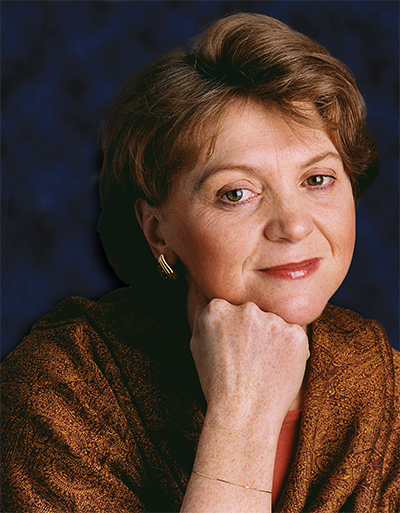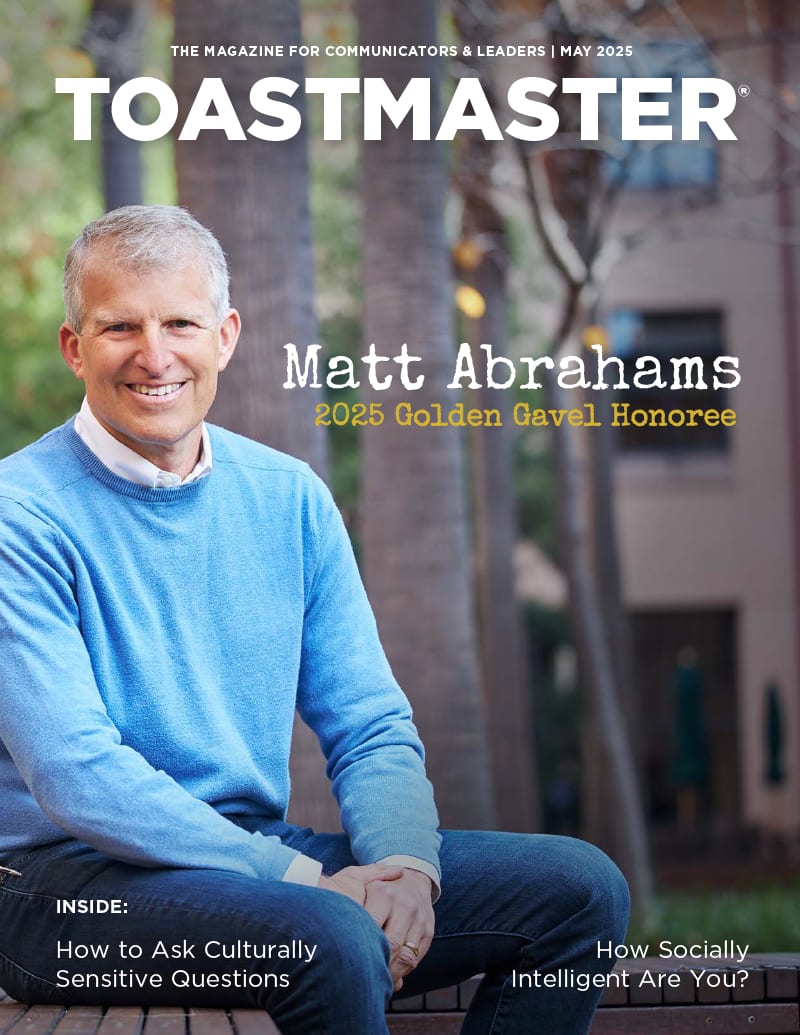 Katherine Scott, DTM
Katherine Scott, DTM
A professional singer turned voice coach, Katherine Scott, DTM, knows how to get you in tune with an audience, whether you’re giving a presentation or belting out a hit.
Originally from Toronto, Ontario, Canada, Scott was inspired by a dream to move to Vancouver, British Columbia, and live by the mountains and ocean. In addition to singing and songwriting, she expresses her creativity through writing and giving speeches.
Currently vice president education for Morningstars club in Gibsons, British Columbia, Scott recently met the goal she set five years ago as a new Toastmaster—earning a DTM.
Why did you join?
In my experience, Toastmasters is the best self-discovery program in the world because results are measured and sustained. Its structure provides a container for my endless creative possibilities. I'd heard about Toastmasters from some of my voice-coaching clients, but my move to the Sunshine Coast was the perfect timing for me to join a club—definitely one of my better life decisions.
Right from my Ice Breaker speech I knew the potential for transformation on a personal level. However, equally important to me is how Toastmasters bridges the divide between different cultures and identities. We can find common ground. What a wonderful model for the world.
Tell us about your career as a voice coach.
I've been a singer forever, but coaching singers and speakers evolved naturally when I began working with a new teacher. Others started asking me to coach them. The day I turned in my resignation at work and opened a full-time voice studio was a high point of my life.
As a singer I'd sung some wonderful repertoire, but when I started to write and sing my own songs I began to understand what it means to have a deep connection with an audience. Toastmasters opened up another opportunity for me to use my voice through professional speaking. My goal in working with clients is to help them intentionally create an experience of connection, every time, with their audience. To learn more about what I do, visit www.youruniqueexpression.com.
You are also a certified emotion code practitioner. What does that entail?
The Emotion Code is an energy modality developed by Dr. Bradley Nelson that helps people release old trapped emotions. One of my clients temporarily stopped talking at the age of 5 because she was bullied. As a result, she was terrified to speak in front of groups. It was holding her back in her career, but it helped when we identified the incident and worked through it. Being a certified emotion code practitioner means I can use it in coaching sessions when clients hit a wall and don't know why. I work with it myself and I've even done a speech about it in my club.
How has Toastmasters helped you in both of these fields?
Most of my voice coaching is done one-on-one, but I also give workshops on how to speak with presence and power. They're a lot of fun, and I'm confident standing in front of a group knowing that I have something of high value to offer.
My skill in speaking off the cuff has also been transformed. Thank you Table Topics! This year I plan to bring singing and speaking together with music in keynotes. Everything I learn in Toastmasters is essential for achieving another one of my goals—to be skilled at doing online videos and podcasting. Learning better communication skills for the internet will allow me to support more change agents to connect with their own particular audience.
You have held club officer roles and even served as area governor—what have you learned from those experiences?
I wanted to become a better leader, so I joined my club's executive team almost immediately. There's a fine line for me between leading and managing, and I've had a few uncomfortable moments when I've crossed over that line and had to step back. But perhaps the most important change in me is saying yes to invitations to speak and lead outside the club. Before I joined, I probably would have said no.
Shannon Dewey is digital strategy and engagement editor for the Toastmaster magazine. Reach her at sdewey@toastmasters.org.




 Previous Article
Previous Article